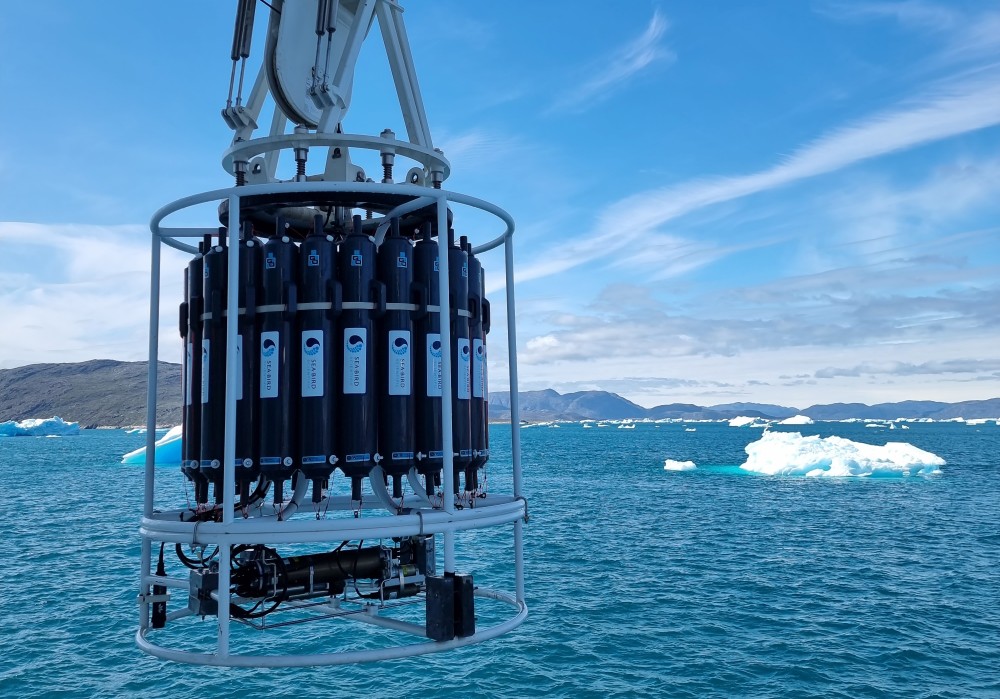Groundbreaking research thrives on passion, innovation and persistence. At the Flanders Marine Institute (VLIZ), our commitment to polar climate research exemplifies this principle. Since the launch of the Marine Robotics Centre six years ago, collaboration between engineers, researchers and state-of-the-art infrastructure has rapidly positioned VLIZ as a key player in polar science. By integrating both hypothesis- and observation driven research, in collaboration with national and international research teams, VLIZ has significantly advanced polar research in Flanders and Belgium. Over the years, VLIZ has empowered early career researchers and engineers, developed innovative observation systems, strengthened national and international partnerships, and contributed to high-impact scientific publications.
The polar regions of both hemispheres play a crucial role in the global climate system. Over the past years, VLIZ has expanded its operational and research capacity into the Arctic, building on its established expertise and infrastructure, and developing new technologies, like real-time under-ice monitoring stations, when needed. Today, the institute has the expertise and cutting-edge technology to successfully implement ambitious polar research programs. Our technology includes advanced greenhouse gas measurement systems deployed on research vessels and a suite of Marine Autonomous Systems, such as Unmanned Surface Vehicles (USVs Gobelijn and Adhemar), Autonomous Underwater Vehicle (AUV Barabas), Gliders (Gliders Yoko and Tsuno) and moorings. These advanced systems support observation-driven research, which is central to modern oceanography, and serve as a vital complement to hypothesis-driven studies focused on cause-and-effect mechanisms.

Our work has yielded significant results, notably by helping decode a mysterious 9-day-long global seismic signal. This signal was triggered by a rockslide-induced tsunami, reaching 200 meters in height, and a subsequent seiche in a remote Greenlandic fjord. The findings of this study were published in a high impact article in the top-ranking scientific journal Science. Moreover, the study attracted worldwide attention ranking in the top 5% of Science’s all-time research outputs, and being featured in major news outlets across the globe.
Through international collaboration and European-funded projects, VLIZ has created opportunities for next-generation scientists and engineers. The institute has been involved in a multitude of oceanographic Arctic field campaigns, supervised and mentored MSc, PhD, and engineering students. One exemplary initiative is the Eurofleets+ research cruise in Greenland onboard the research Vessel Sanna in 2022, which was led by an Early Career VLIZ scientist in support of ongoing PhD research at VLIZ. Another key project is GreenFeedBack, a European Horizon Europe initiative where VLIZ combines its expertise in greenhouse gas measurements (developed in the context of the Integrated Carbon Observation System network, ICOS) with the operational capacity of the VLIZ marine robots. This collaboration aims to advance and apply new measurement techniques for greenhouse gases in Arctic surface waters. VLIZ’s expertise in greenhouse gas monitoring has also been applied during research cruises onboard RV Neil Armstrong (USA), RV Skagerak (Sweden) and RV Belgica (Belgium), conducting high-resolution greenhouse gas measurements around Greenland and Svalbard and in Baffin Bay.
Polar science is teamwork. VLIZ actively fostered interdisciplinary collaboration at regional, national and international levels. The institute participates in the Belgian National Committee on Arctic and Antarctic Research (BNCA2R) and the Association of Polar Early Career Scientists Belgium (APECS Belgium). In April 2024, the Belgian Polar Community Day brought over 100 polar researchers to VLIZ for discussions, workshops, and networking. Organized in collaboration with APECS Belgium, this event showcased the strength of Flanders/Belgium’s polar research community and its essential research infrastructure, including RV Belgica, VLIZ’s marine robots, and the Princess Elisabeth Antarctica Research Station.
In the (near) future, VLIZ aims to further expand its ocean and climate research capacity, increasing Arctic research campaigns, particularly those involving RV Belgica. Additionally, the institute is strengthening partnerships with Flemish, Belgian, European, and international research networks. Through innovation, collaboration, and long-term ocean monitoring, VLIZ continues to strengthen Flanders and Belgium’s position as a frontrunner in global polar science. The momentum we have built is just the beginning.